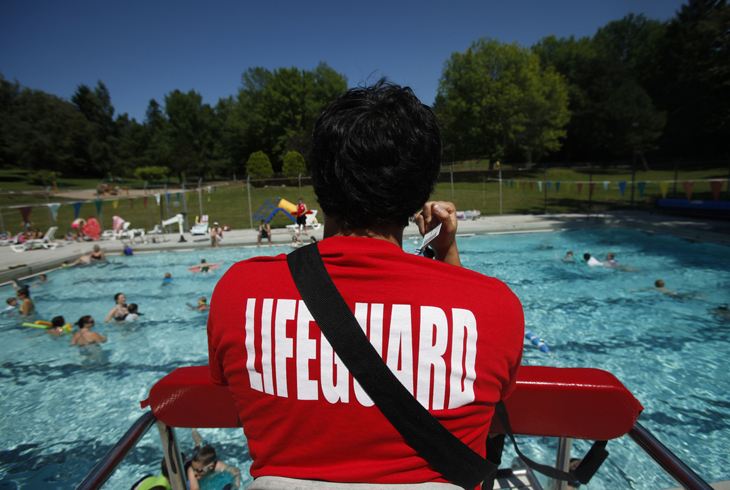It is springtime and most people are sending word out for the upcoming summer by organizing lifeguard certification. Be it an expert swimmer or someone looking to start an awesome career within aquatic safety, being a certified lifeguard is an entirely worthy goal motivated by some aspect of impact. People who want to take proficiency a step further may do so by qualifying as a lifeguard trainer where they can share knowledge with others and help them save lives.
If you are looking for an organization that provides lifeguard training, the American Lifeguard Association (ALA) should come to mind because it is the best in terms of providing the most comprehensive and accessible certification programs for trainees. So, this spring, grab yourself that certification by enrolling in one of their courses and acquiring the necessary skills and confidence to flourish in a very vital role.
Why you need a Lifeguard certification
Lifeguarding isn’t merely summer work; it is accountability, specialized training, quick thinking, and physical endurance. Such lifeguards save thousands of lives each year by preparing them to face emergencies that happen in and around the water. Pools, beaches, water parks, community recreation centres, such trained lifeguards know what is required to be done to save the general public from harm.
Accreditation courses help train everyone on how to prevent, recognize, and respond to an aquatic emergency. Among the course content in this certification include water rescue techniques, CPR, first aid, and AED usage. For those willing to start a new career, becoming a lifeguard instructor is the next step.
Lifeguard Trainer
A lifeguard trainer is a certified professional who trains applicants in learning the skill of being a lifeguard. This person has superior lifeguard techniques and is capable of communicating effectively with the candidates as per the teaching guidelines. Lifeguard trainers impart knowledge to their students about emergency response, risk management, and water safety.
All aspiring lifeguard instructors are involved in the specialized training program offered by the American Lifeguard Association. With these, the programs are tailored to perfectly suit those lifeguards who have absolute mastery of skills but would like to develop more teaching skills and technical exposure to deliver a successful certification course. The best way to receive a legacy for a community is to raise future lifeguards through lifeguard instructor training.
The Lifeguard certification courses: What to Expect
If ever there was a time for registering for a lifeguard certification course, this would be the spring:
1. Swimming Skills Assessment
Before the series of lessons, specifically, a swimming skills test is administered. It usually means swimming a given distance, picking up an object from the bottom of the pool, and treading water for a given amount of time. These tests exist so that at least every participant has the basic skills to be called a swimmer and the requisite skills to undergo the course.
2. Water Rescue Techniques
Water rescues occupy a major portion of the curriculum. Participants learn to identify distressed swimmers, rescue these swimmers, and provide assistance without compromising their safety. Such skills are requisite lifeguard know-how for any guard, anywhere.
3. CPR and First Aid Training
Because lifeguards are often the first to respond in aquatics emergencies, CPR and first-aid training are compulsory components of the certification courses process. Students learn how to deliver chest compressions, rescue breaths, and several other life-saving measures and how to operate an AED, an important skill in cardiac emergencies.
4. Risk Management and Prevention
The lifeguard certification courses, teach participants to identify hazards, enforce safety rules, and educate the public on water safety. Such skills help to reduce foreseeable accidents and subsequently ensure a safer environment for all.
5. Final Exam
To obtain the lifeguard certification courses at the end of the course, one must pass a written exam and the practical skills test. The written exam will refer to the theoretical portion of lifeguarding, and the practical test will assess an individual’s performance in rescues and first-aid recipients.
Becoming a Lifeguard instructor with the ALA
Becoming a lifeguard instructor is a promising prospect for individuals who want to take lifeguarding to the next level. The ALA indeed has specialized programs for advanced lifeguards who are willing to train others to be certified through the courses offered by the organization. Here’s what to expect from the ALA lifeguard instructor training:
1. Advanced Training
Course content is organized to build upon the lifeguard skills learned in the basic certification courses. Participants learn advanced rescue techniques, methods of teaching, and strategies for course planning, preparing future instructors to conduct certification courses training on their own.
2. Teaching Practice
A considerable part of the lifeguard instructor training is teaching practice. Under an experienced instructor, the participant will be allowed to lead parts of a certification course. This aspect of education is irreplaceable in building a person’s teaching ability and confidence.
3. Certification
Successful completion of this program results in the award of the lifeguard instructor certification courses, authorizing the instructor to teach ALA lifeguard courses and take new lifeguard certification courses. This accomplishment opens even more doors for future careers and allows instructors to positively influence their communities.
Final Word
Enroll in one of the certification courses offered by the American Lifeguard Association this spring, so you can start on the right track toward a rewarding career in lifeguarding. Accessible to potential lifeguards as well as lifeguard instructors, the ALA covers just about everything from conception to operation of comprehensive lifeguard training programs designed to guarantee success. With flexible learning options, experienced instructors, and a focus on real-world scenarios, the ALA is the ideal choice for anybody serious about aquatic safety.
Don’t waste any more time! The truth is, that certification courses in lifeguarding are quite popular, especially during the summer seasons. So, log on to the American Lifeguard Association’s site today to find a course near you and begin the journey toward becoming a certified lifeguard or lifeguard instructor. That is where your future in aquatic safety starts!

